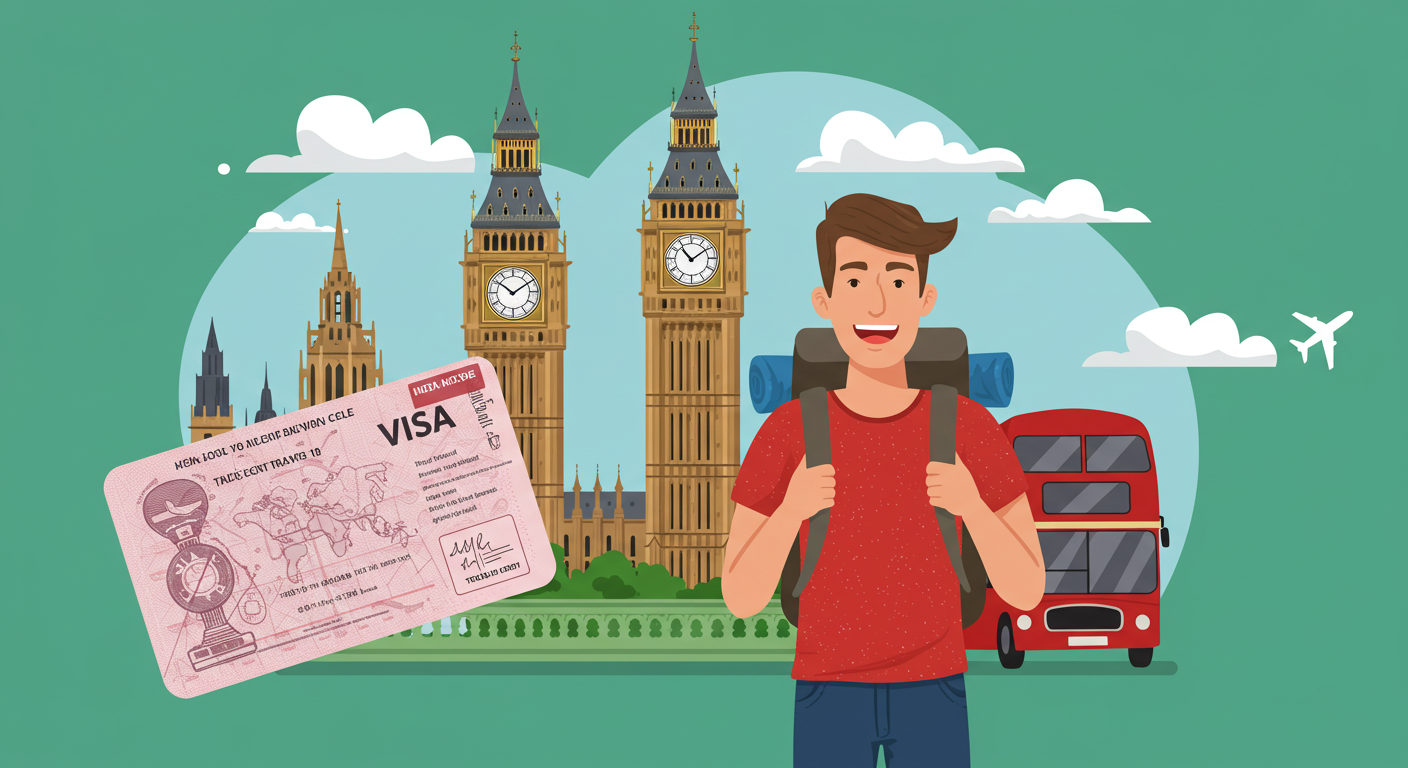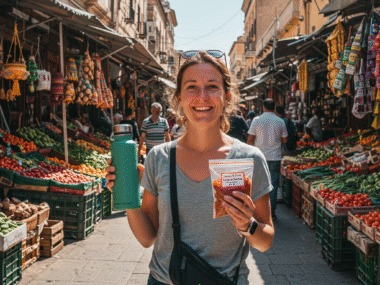Dreaming of strolling through London’s bustling markets or hiking the misty hills of Scotland without emptying your wallet? If you’re eyeing the UK as your next big adventure but need visa sponsorship to make it happen, you’re in luck—there are smart, affordable paths to get there that combine low-cost travel hacks with sponsorship opportunities.
Understanding Visa Sponsorship
Traveling to the UK with visa sponsorship doesn’t have to be a luxury reserved for the wealthy. In fact, with some planning and insider tips, you can turn this dream into reality on a shoestring budget. Whether you’re a skilled professional looking for work, a student eager to study abroad, or someone exploring family routes, the key is focusing on the cheapest visa sponsorship options while slashing costs on flights, accommodation, and daily life. I’ll walk you through it all in simple steps, sharing practical advice like a friend who’s been there. Let’s break it down so you can start packing without the stress.
What is Visa Sponsorship?
First off, let’s talk about what visa sponsorship really means in the UK context. Visa sponsorship is when a UK-based employer, university, or family member backs your application, essentially vouching for you to the Home Office. This is crucial for many non-EEA nationals who want to live, work, or study in the UK long-term. The good news? Not all sponsorship routes are expensive. The cheapest way to travel to the UK with visa sponsorship often involves work or study visas, as they can lead to paid opportunities that help cover your costs once you’re there.
Work Visa Options
Skilled Worker Visa
One of the most popular and relatively affordable options is the Skilled Worker visa. This visa lets you work in the UK for an approved employer who’s willing to sponsor you. To qualify, you need a job offer in an eligible occupation, like nursing, teaching, or IT roles, and your employer must hold a sponsor license from the Home Office. The salary threshold is key here—most jobs need to pay at least £38,700 per year, but there are lower thresholds for shortage occupations or if you’re under 26. For example, health and care roles often have reduced requirements, making them a budget-friendly entry point for many immigrants.
Costs and Requirements
Application fees for the Skilled Worker visa start at around £719 if you’re applying from outside the UK for a stay of up to three years, and it goes up to £1,420 for longer periods. If you’re switching from inside the UK, it’s a bit more at £827 to £1,636. Don’t forget the Immigration Health Surcharge (IHS), which is £1,035 per year for most applicants, but it’s waived or reduced for health workers. You’ll also need to show you have at least £1,270 in savings to support yourself initially, unless your sponsor covers this. Sounds like a lot? It adds up to about £2,000-£3,000 total for the basics, but many find sponsors who help with relocation costs.
Finding Sponsorship
To find cheap sponsorship for this visa, start by targeting industries with high demand and lower entry barriers. Healthcare is a goldmine—roles like care assistants or nurses often come with sponsorship and starting salaries that meet the threshold. Websites like Indeed or NHS Jobs list thousands of positions with visa sponsorship. For instance, entry-level jobs in social care might not require fancy degrees, just some experience and a willingness to learn. Tech and engineering fields are also booming, with companies in London or Manchester sponsoring skilled workers from abroad. A tip: Apply directly to smaller firms; they might be more flexible and less competitive than big corporations.
Health and Care Worker Visa
For health workers, the Health and Care Worker visa is a variant with no IHS fee, saving £5,000+ over five years. Jobs via agencies like Reed or Indeed often include training.
Study Visa Options
Student Visa
If work isn’t your immediate goal, consider the Student visa as another cheapest way to travel to the UK with visa sponsorship. Universities act as sponsors here, and it’s often more accessible for younger folks or those building skills. To apply, you need an offer from a licensed institution, proof of English proficiency (like IELTS), and enough funds to cover tuition and living costs—around £1,334 per month in London or £1,023 elsewhere for up to nine months.
Costs and Benefits
The visa fee is £490 from outside the UK, plus the IHS at £776 per year for students. Total upfront costs? Often under £1,500 if you snag a scholarship. Many universities offer partial sponsorships or bursaries, especially for international students from developing countries. Once in the UK, you can work part-time (up to 20 hours a week during term time), which helps offset expenses. This route is perfect if you want to study something practical like business or engineering, then transition to a Graduate visa for work afterward.
Finding Affordable Universities
Sites like Student Circus or Reed.co.uk filter for sponsored roles. For students, apply to affordable unis like the University of Bolton or Coventry University, which have lower tuition (around £9,000-£12,000 per year) and strong international support.
Family Visa Options
For families, the Partner or Family visa can involve sponsorship from a UK resident, but it’s not always the cheapest due to higher financial requirements—like proving your sponsor earns at least £18,600 annually (more with kids). Still, if you have relatives in the UK, this could be a low-cost entry if they cover your initial setup.
Securing Sponsorship on a Budget
Now, how do you actually secure that sponsorship without breaking the bank? Networking is free and powerful. Join LinkedIn groups for UK jobs with visa sponsorship, or forums like Reddit’s r/IWantOut for real stories from people who’ve done it.
Preparation Tips
Preparation is everything to keep costs down. Gather documents early: passport, job offer or course acceptance, bank statements, and TB test results if required (about £100). Use free online resources to prep your English test—YouTube has tons of tutorials. Avoid agents who charge hefty fees; the UK government warns that sponsorship itself should be free, as legitimate employers don’t charge for it.
Travel Hacks for Cheap Flights
Once your visa is sorted, the next big hurdle is getting to the UK cheaply. Cheap flights to UK are easier than you think, especially if you’re flexible. From the US, round-trip tickets to London can dip to $400-600 in off-peak months like January or November. From India, expect $300-500 from Mumbai or Delhi on budget carriers like IndiGo or Air India. Europeans? Ryanair or EasyJet often have deals under €50 from Paris or Berlin.
Booking Strategies
The secret to scoring cheap flights to UK? Book 2-3 months ahead using sites like Skyscanner or Google Flights. Set price alerts and fly mid-week. Avoid summer peaks; March or October are gold for bargains. If you’re from Asia or Africa, look for layovers in Dubai or Istanbul to save hundreds. For example, a flight from Nigeria to London might cost $400 via Ethiopian Airlines instead of $800 direct.
Budget Airlines
Budget airlines are your best friend for cheap flights to UK from various countries in 2025. From Australia, Scoot or Qantas deals can hit $800 return. Canadians, check WestJet for under $500 to Manchester. Pro tip: Pack light to dodge baggage fees—most low-cost carriers charge extra for checked bags.
Airport Transfers
Landing in the UK? Don’t splurge on airport transfers. Take the National Express coach from Heathrow to central London for £6-10, or the Piccadilly Line tube for £5. In other cities like Edinburgh, trams or buses are under £5.
Budget Living in the UK
Now, let’s dive into budget travel tips in UK to stretch your pounds once you’re here. The UK isn’t cheap, but with savvy moves, you can live like a local without the high costs.
Transportation
Start with transportation: Trains are efficient but pricey—book advance tickets on Trainline for 50% off. Better yet, use coaches like Megabus or FlixBus for inter-city trips; London to Manchester can be £10-20. For daily commutes, get an Oyster card in London (or contactless payment) for capped fares—£8.10 daily max for buses and tubes. In other cities, day passes are £4-6. Cycling? Borrow Santander bikes for £1.65 per 30 minutes. Walking is free and the best way to explore—many cities have scenic paths.
Accommodation
Affordable accommodation in UK for new immigrants is crucial. Skip hotels; opt for hostels like YHA (Youth Hostels Association) where dorm beds start at £15/night. For longer stays, flat-shares on SpareRoom or Facebook groups go for £400-600/month outside London. In cheaper cities like Birmingham or Glasgow, you can find rooms under £300. Council housing or housing associations offer subsidized options if you qualify as a low-income immigrant—apply via your local authority.
Airbnb isn’t always the cheapest for long-term; look for weekly rentals on Gumtree for £200-300 in suburbs. If you’re a student, university halls are £100-200/week with utilities included. Tip: Offer to pay rent upfront if you’re new and lack references—it builds trust.
Food
Food can eat your budget, but smart choices keep it low. Shop at Aldi or Lidl for groceries—£50/week feeds one person. Markets like Borough in London have cheap street food under £5. Many pubs offer £10 meals with deals. Free water refills everywhere, and apps like Too Good To Go sell surplus food for £3-5.
Free Activities
Free things to do in UK? Plenty! Museums like the British Museum or Natural History Museum in London are gratis. Stroll Hyde Park or Regent’s Park. In Edinburgh, hike Arthur’s Seat. Beaches in Brighton or Cornwall are open access. Join free walking tours via apps like GuruWalk.
Timing and Additional Savings
To make your trip even cheaper, time it right. Visit in shoulder seasons for lower prices on everything. Use cashback sites like TopCashback for bookings. If sponsored for work, negotiate relocation packages—many cover flights or housing setup.
Exploring Other Visa Options
Youth Mobility Scheme
Other cheap routes? The Youth Mobility Scheme for certain nationalities (like Aussies) allows two years without sponsorship, but it’s lottery-based.
Seasonal Worker Visa
Or Seasonal Worker visa for farm jobs—short-term but sponsored and low-barrier.
Regional Insights
London vs. Other Regions
Expand on regions: London is priciest—avoid if possible. North England like Newcastle: Cheaper rents (£400), same sponsorship ops. Scotland: Lower living costs, free uni for some, but sponsorship similar. Wales: Affordable, beautiful—Cardiff flats £500. Northern Ireland: Even cheaper, Belfast vibes.
Practicalmillian Life
Cultural and Practical Tips
Cultural tips: Brits love queues, tea—join in to fit. Health: NHS free with IHS paid. Banking: Open with Monzo or Starling easily. Language: English varies—accents fun. Safety: UK safe, but watch pickpockets in cities.
Eco-Friendly and Community Tips
Eco-travel: Trains over planes internally. Volunteering: WWOOF for free stays on farms. Festivals: Free ones like Notting Hill Carnival. Books: Borrow from libraries free. Sports: Free parks for runs, football. History: Walk Roman walls in Chester gratis. Nature: National parks like Lake District—hike free. Art: Street art in Bristol, no cost. Music: Free gigs in pubs. Community: Join expat meetups on Meetup.com.
Daily Savings Hacks
Food hacks: Meal deals £3 at supermarkets. Shopping: Charity shops for cheap clothes. Tech: Free charging at cafes.
Budget Example and Challenges
Budget example: Visa £1,000 + flight £400 + first month £800 = £2,200 start. Earn £2,000/month, break even fast.
Challenges: Weather rainy—pack layers. Costs rise with inflation—check current.
Conclusion
In conclusion, the cheapest way to travel to UK with visa sponsorship is blending a low-fee visa like Skilled Worker or Student with budget flights and thrifty living. It’s doable, rewarding. Start planning today!
Resources
For more info, check these resources:











